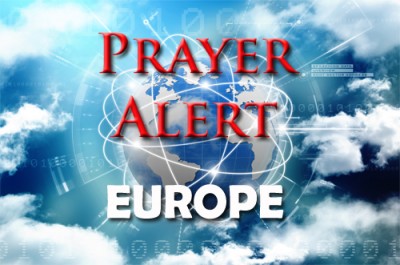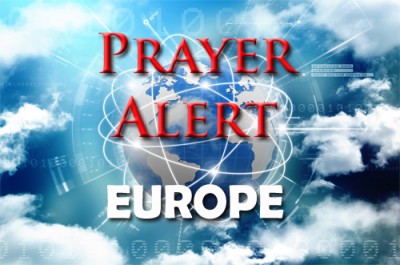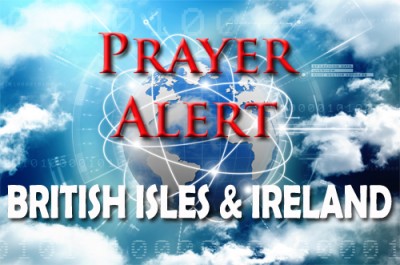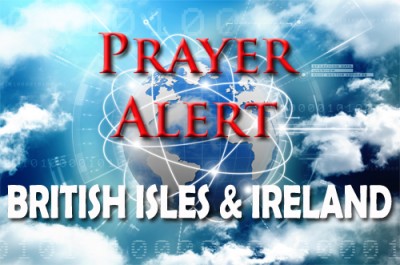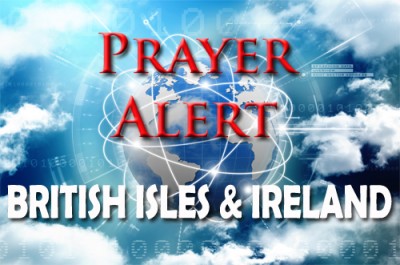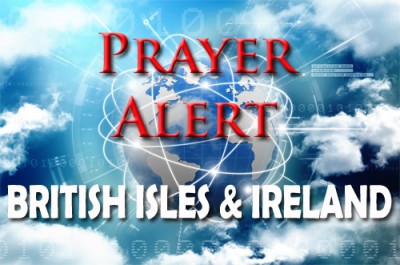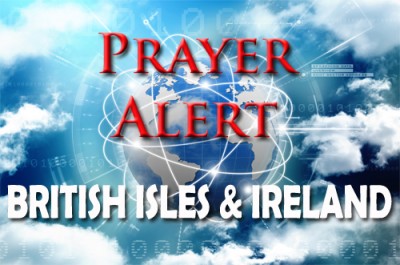Fleeing from terrorists, finding Jesus
03 Jun 2016Nouh, a young Iraqi boy, said, ‘I used to be scared of Daesh but Jesus filled my heart with joy and peace.’ He came to faith in Christ after his family were forced to flee from IS. Though his family were of Christian heritage, they didn’t know Jesus personally. Nouh said that when IS seized control of his home town, he was ‘very afraid that they would kill us because we heard they killed many people’. His family, like thousands of other Iraqi Christians, fled to Lebanon where they were welcomed and supported by a local church. ‘We got introduced to many people who love Jesus Christ.’ Despite all that Nouh and his family have suffered and lost, he said, ‘I am very happy that I came to Lebanon and learned about Jesus. Now I know that Jesus takes care of all the details in my life.’
Europe: floods and climate change
03 Jun 2016The European Environment Agency reports, ‘Temperatures are rising, rainfall patterns are shifting, glaciers and snow are melting, and the global mean sea level is rising. These changes are expected to continue, and extreme weather events such as floods and droughts will become more frequent and intense.’ This week torrential rain has hit several countries. On Wednesday five people died in floods in France and Germany. Dozens of towns have been inundated and people have been saved by helicopter. Residences, schools and a retirement home were evacuated in Montargis, south of Paris. In Germany, near the Austrian border, firefighters and other emergency services were dispatched to inundated towns. The national weather service said France had endured the wettest month of May since records began. Forecasters say waters are expected to keep rising for several days. See also
Bulgaria: meeting point of Europe
03 Jun 2016The Bulgarian people-group is formed from the ancestral mixing of the Bulgar and Slavic peoples, but the country is also home to Macedonian, Millet, Turkic, and Roma people, with Greek, Slavic, Ottoman and Persian influences. It has a rich heritage of traditional dance, music, costumes, and crafts - but society is broken. High poverty, divorce, abortion (outnumbering live births), emigrating youth, and discriminating minorities plague the country. Both Islam and Christianity have united old pagan beliefs and traditions. In the 1990s, an influx of foreign-funding created dependency among churches and a general perception that evangelicals ‘buy’ converts - now diluting efforts to share the Gospel. Many who pledge allegiance to the Church do not practise any faith, and even more are repulsed by anything associated with it. Pray for Christ to reclaim his position as the Head of the Bulgarian Church, and for racism to be counteracted by believers demonstrating Christ’s love.
Praying for the EU referendum
03 Jun 2016The World Prayer Centre will not make recommendations on how to vote on 23 June, but they do want to mobilise prayer for God's sovereignty over the decision and His wisdom as we make that choice. The following is based on the WPC prayer diary: a) May the younger generations in the UK find a voice as they engage and vote (1 Tim 6:11). b) Bless and give wisdom to guide everyone who is eligible to vote (Prov. 3:5-6). c) Give every church and every Christian the courage to engage with the issues (Jn.10:27). d) Declare ‘Jesus is Lord’ over EU institutions (Dt. 32.4).
A church in Leamington Spa showed the film Life of Brian on 28 May to a packed audience. Father Christopher Wilson screened the controversial film to raise funds. His decision angered churchgoers who say the satirical comedy was 'offensive'. It was branded 'anti-Christian' when it was released. Life of Brian tells the story of a young Jewish man being mistaken as the Messiah. It sparked protests from religious groups and 39 local authorities in the UK banned it when it was released in 1979. The church also staged a fundraising concert called 'Music you don't normally hear on a church organ' (Meat Loaf's Bat out of Hell, Madonna's Like a Prayer, and Vicar in a Tutu by The Smiths).
Britain and corruption
03 Jun 2016Roberto Saviano spent a decade exposing criminal activities of the Italian Mafia, and has lived under police protection since 2006 when he publicly denounced members of a powerful mafia crime syndicate. Last Saturday, flanked by security guards, he made a rare appearance at the Hay Literary Festival. He warned the audience that financial institutions were allowing ‘criminal capitalism’ to thrive through offshore holdings. ‘If I asked you what is the most corrupt place on earth, you might tell me it’s Afghanistan, maybe Greece, Nigeria, or the south of Italy, but I will tell you it’s the UK’, he said. ‘It’s not the bureaucracy, it’s not the police, it’s not the politics but what is corrupt is the financial capital. 90% of owners of capital in London have their headquarters offshore.’
New inquests on Birmingham bombings
03 Jun 2016Fresh inquests into the deaths of 21 people who died in the 1974 Birmingham pub bombings offer an opportunity for the perpetrators to come forward, said Canon Janet Chapman after Birmingham's top coroner ordered them in view of ‘significant’ new information that West Midlands Police missed two potential warnings of the bomb attacks. Canon Chapman belongs to Birmingham Cathedral, which has been holding an annual vigil for the victims of the double bombing, which struck two pubs in 1974. Explaining her hopes for the new inquests, she said, ‘I think it is about discovering more about the truth. It is a desperate situation with the gross miscarriage of justice over forty years ago. As I have worked in the cathedral and have got to know some of the victims of the families, I can see the heartache they carry because they do not know the truth.’
Fire and rescue services' failings
03 Jun 2016In her first major statement since the Home Office took over responsibility for fire and rescue services this year, Theresa May said that lack of diversity and accountability and bullying make reforms necessary. She criticised the services for being 96% white and 95% male, and for condoning a ‘culture of bullying and harassment’ in some parts of England and Wales. In her speech she confirmed her intention to allow elected police and crime commissioners (PCCs) to take over fire and rescue services where a local case to do so is made, and to introduce an independent inspection regime, which she said was currently impossible. Mrs May described a toxic and corrosive culture in some parts of the services, necessitating a programme of reform that was ‘radical and ambitious’.

